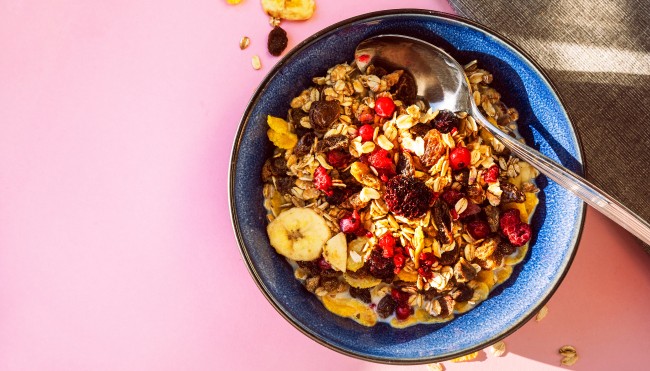Intermittend fasting

Everyone is speaking about it. Everyone wants to try it. Everyone has a different opinion on it. Intermittent fasting or IF has become a big diet trend recently. Mainly used to try to lose weight, scientific studies show that it can be useful to restore sugars sensitivity, improve insulin response, and increase energy levels throughout the day. Placebo effect or truth? In this article we will try to take stock of intermittent fasting by understanding when it is useful and when it could be counterproductive.
What is intermittent fasting?
Intermittent fasting is a diet pattern based on the cycle of alternating defined periods of eating and fasting. There are no limits of calories and no restrictions of particular foods, but the most important thing is to respect the set timing. Fasting benefits (we are gonna speak about them later) generally kick in after 12 hours of not ingesting foods. The most popular and easiest protocol of fasting is the 16/8, which consists in fasting for 16 hours and eating in a time-frame of just 8 hours. Nothing to be too afraid of! 16 hours without eating sounds like an impossible challenge, but most likely people don't experience unpleasant feelings. The trick is to just extend the “night-fasting” time by having dinner earlier and having breakfast the day after later than usual. Let's make an example on how I would structure 16/8 IF: from today I am gonna eat dinner at 7 pm which is gonna be my last meal of the day, and then I will stop eating food until tomorrow 11 am. After 11 am I am gonna have normal meals until 7 pm when my “eating-window” closes. This is just an example on how to apply the 16/8 routine, but you can basically decide how to do it and for how long. Remember that the “eating window” usually lasts for 8 hours maximum.
During the fasting period no food is allowed but you have to keep you hydrated: water, coffee, tea, no-calories drinks (not too often because they have an effect on the body sugar metabolism) everything you liked strictly without sugar, protein or fat otherwise the fasting would be interrupted. On the contrary during the “eating-window” all foods are permitted: if you are a “breakfast-person” you can have as a first meal a normal brekkie with muesli, yoghurt, and fruits, or a toast. If your hunger usually rises in the second half of the day you can already start with lunch, then having some snacks and dinner. Important disclaimer: IF consists in timing and it’s a dietary pattern to be implemented only when a balanced and complete diet already exists.
Which protocol should I choose if 16:8 it's not for me?
As previously mentioned, IF refers to many different protocols, and it's up to you to decide which one works better for your needs. Thinking on your daily routine it can be:
- an everyday eating solution
- used just for 2 days a week
- extended for just some weeks
- prolonged for months
It really depends on your goals, on what you wanna achieve practicing intermittent fasting. The most famous and well-known methods are these:
- Eat-Stop-Eat: this involves fasting for 24 hours, once or twice a week, and it usually goes from a dinner to the next one.
- Alternate-day fasting: Alternating between days of no food restriction with days that consist of one meal that provides about 25% of daily calorie needs.
- The so-called 5:2 diet: 500-600 calories are allowed on two non-consecutive days of the week, while eating normally the other 5 days.
- Whole-day fasting for 1-2 days per week of complete fasting or up to 25% of daily calorie needs, with no food and calories restriction on the other days.
- Time-restricted feeding: following a meal plan each day with a designated time frame for fasting. The 16/8 method also called “Lean-gains protocol”
As you see there are so many different approaches that make IF suitable for almost everyone. You just need to find out first your health goals and second your method. Setting goals is important to keep track of improvements and body responses. There is no reason to start fasting if there aren't specific needs. Moreover we at CodeCheck always suggest you to speak with your doctor before going fully into intermittent fasting, especially if you:
- Have diabetes.
- Have problems with blood sugar regulation.
- Have low blood pressure.
- Take medications.
- Are underweight.
- Have a history of eating disorders.
- Are a woman who is trying to conceive.
- Are a woman with a history of amenorrhea.
- Are pregnant or breastfeeding.
That said, IF is generally safe, there is nothing dangerous about not eating from time to time, indeed can be your best ally.
How does it impact body health? Is it better than a classic eating pattern?
So concretely speaking, what benefits does fasting induce? First of all it's important to point out that nowadays, in most developed countries, food is affordable and easy to find: as today we would never starve to death. For centuries humanity was struggling in achieving nutritious food, and fasting was on the agenda. Probably not always done on purpose, but simply because there was no food and money was never enough to have a proper meal. Only certain social classes could afford to have a "varied" (so to speak) and balanced diet. That's why our body and our genetics have evolved to be able to survive. Our bodies tend to easily accumulate and store calories in fat reserves, which will be used to provide energy in times of famine. It is only since the nineteenth century that the accessibility of food has become easier, even for the poorer classes, thanks to industrialization. Now we are exactly on the opposite side: industry has led to a standardization and hyper production of food, often making it much less nutritious but much more caloric. Our genetics, however, didn't have the time to readapt to these changes, keeping its ability to accumulate even with a lot of food available. The sum of calories surplus, genetic predisposition to store them, and very little effort in sourcing food, have led to one of the plagues of the modern era: obesity.

This premex to say that our body is perfectly trained to survive during starving periods, and indeed during these times of fasting is able to produce energy from the reserves of lipid tissue and even to start some process of cellular regeneration. In fact, the whole digestive process involves a lot of energy and many cellular metabolisms work but it is a dietary pattern to be implemented when you already have an excellent balanced diet and complete every time we eat. With the classic diet pattern of 5 meals per day our body never rests. Even our gut is often "tired and clogged" and when it sends us signals of discomfort, we are automatically driven to give it a brake by avoiding food.
Research has studied fasting in depth and hence the IF protocols that are so much in vogue at the moment. Nothing is certain and confirmed yet, but the benefits found with the practice of calories restriction and timing are many, and demonstrated through clinical studies.
Here are the main health benefits of intermittent fasting:
- Weight loss: IF can help in losing weight while improving body composition, without having to consciously restrict calories everyday
- Insulin resistance: Intermittent fasting can help in reducing insulin resistance, while lowering blood sugar and fasting insulin levels (important parameters for type 2 diabetes)
- Inflammation and Oxidative stress: by reducing inflammatory markers and free-radicals IF can help in preventing chronic diseases
- Heart health: it helps in reducing LDL cholesterol, blood triglycerides and blood pressure ,all risk factors for heart disease even for short-term
- Brain health: it seems to increase a brain hormone involved in nerve cells production while generally improving brain functions.
It's important to underline that more randomized clinical trials studies are needed to better understand all the benefits and the possible side effects (if there are) on the long-term period. Also to conduct those studies, specific and perfectly balanced diet plans have been prescribed to the research participants. If you want to try IF your diet has to be balanced and complete of all the essential nutrients, otherwise it can turn into malnutrition.
Is fasting just a trend?
Not at all! Fasting has roots that are based in the ancient times when it was a normal practice used especially with spiritual, political and health purposes. Fasting was used by the ancient Greeks when they consulted the oracles, by philosophers such as Socrates and Plato to clarify ideas, by American Indians to acquire their private totem, and by African shamans to contact the spirits. Many religions use fasting to gain clarity of vision and mystical introspection. For Buddhism, fasting is not purely an outward manifestation but a form of inner discipline, serving to clear the mind and achieve a higher level of spirituality. In Hinduism fasting is a practice connected to purification; Islam practices it in the period called Ramadan (that have been studied to see fasting benefits), a whole month in which adult Muslims are obliged to abstain from all food and water from dawn to dusk. As a form of protest, fasting was already used in the early years of the twentieth century by imprisoned English suffragettes and Irish irredentists. The practice of the hunger strike, became famous by Gandhi who theorized the reasons and methods, hinging it on non-violent thought. Fasting has been used for a long time and also medicine was used to apply it for its health benefits (even more nowadays).
Is IF for everyone?
Nope, is for sure not for everyone. We already mentioned that it is important to start fasting when there are specific health needs and goals. This type of dietary pattern would be difficult for someone who eats every few hours, for all those persons that without breakfast can't start the day and for all the pathologic patients. Also remember that prolonged periods of food deprivation or semi-starvation places one at risk for overeating when food is reintroduced, and even unhealthy eating behaviors can be induced by fasting. That's the reason why we at CodeCheck suggest to start blandly with the 16/8 method 1 -2 days per week, in order to see improvements or worsening (weakness, irritability and nervous hunger are possible side effects) day by day and then understand if it’s good for you or not.




